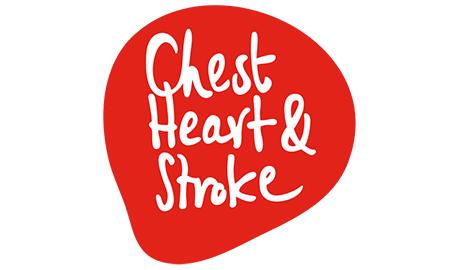Ask The Expert: What Is Heart Failure?
Heart HealthWe are launching a heart failure public awareness campaign as we want to inform everyone what heart failure is, what the symptoms are and advise how people can get help or support.
Ask The Expert: Edith Donnelly, Advanced Nurse Practitioner, Heart Failure, Southern Health & Social Care Trust. Here, she answers your top questions about this condition.
Q: What is Heart Failure?
A: Heart failure is a medical condition where the heart is not able to pump effectively. In very simple terms, the heart is a muscular pump, and its job is to pump blood around body. To do this it needs to contract (squeeze) and relax. Heart failure happens when the heart does not contract or relax as well as it should.
Q: What is the difference between Heart Failure, Heart attack and Cardiac Arrest?
A: It is common for people to get heart failure, a heart attack and a cardiac arrest mixed up, but they are three very different things. As already described, heart failure is when the pumping function of the heart is reduced because it does not squeeze or relax properly. A heart attack is caused by coronary heart disease. This is when there is a narrowing in one or more of the blood vessels that supply blood to the heart muscle. This causes the blood supply to the heart to be cut off and can cause damage to the heart muscle. A cardiac arrest is when the heart suddenly stops beating, leading to a sudden collapse. The person will be unconscious and will need CPR.
Q: What are the symptoms of Heart Failure?
A: The main symptoms of heart failure are shortness of breath, tiredness and fluid retention. These symptoms happen because the heart is no longer able to pump enough blood round the body to meet all of its needs. You might notice that you can’t walk as far as you used to because you get breathless, or that you get tired when doing your normal activities. You might also notice that your feet, legs, ankles or tummy start to swell.
Q: What should you do if you have any of the symptoms of Heart Failure?
A: If you have any of these symptoms you should contact your GP as soon as possible. This is important because if you do have heart failure, the sooner it is diagnosed the sooner you can get started on the correct treatment and get the right care.
Q: How is Heart Failure Diagnosed?
A: The first step is to get a blood test called a BNP. This will let your GP know if the heart is under any strain. If this test is abnormal, they will refer you to hospital for you to get an echocardiogram. This is a scan of the heart that checks the pumping function of the heart. It also looks at how well the heart valves are working. This test is usually done as an outpatient. If the results of the scan show a problem with the pumping function or the valves, a referral will be made to a local heart failure team to have treatment started.
Q: How is Heart Failure treated and how do heart failure patients get cared for in Northern Ireland?
A: When the diagnosis of heart failure is confirmed, patients will be referred to their local heart failure team. This team usually includes a consultant cardiologist and heart failure specialist nurses who are experts in managing this condition. The team will start medication to protect the heart function, improve symptoms and get rid of fluid build-up. These medications are a very important part of heart failure treatment, and it usually takes a few appointments to get them all started. The team will also give advice about how to monitor symptoms, manage fluid intake and what to do if symptoms get worse. Keeping active is an important part of managing heart failure, and the heart failure team might consider a referral to a local cardiac rehabilitation service for specialist advice and support about this. Having a healthy diet and maintaining a healthy weight, stopping smoking and limiting alcohol intake are also very important, and it is recommended that all patients living with heart failure have their seasonal vaccinations.
Q: What causes heart failure?
A: There are lots of causes of heart failure. These include damage to the heart muscle after a heart attack, an abnormal heart rhythm, high blood pressure or problems with the valves in the heart. It can also be caused by congenital heart disease (something you are born with), or cardiomyopathy (disease of the heart muscle). Sometimes it is caused by a virus or inflammation. In some cases we are not able to find a cause.
Q: Heart failure sounds terrifying - what are the outcomes for people with Heart Failure?
A: It does sound scary, but having heart failure does not mean that your heart is about stop working. Although in most cases there is no cure, we know that being on the correct medicines and having access to care from cardiologists and specialist nurses can help people live better for longer with this chronic condition.
Q: Is Heart failure an illness for older people?
A: Heart failure is more common in older people, with an average age of around 77 at the time of diagnosis. However, some younger people do get heart failure, so it is important to be aware of the symptoms and what to do if you get them at any age.
Q: How prevalent is Heart Failure in Northern Ireland?
A: We think there are approximately 20,000 people living a heart failure in Northern Ireland, however we think the number is probably higher than this.
Q: Why is it important to raise public awareness of heart failure in Northern Ireland?
A: Raising public awareness about heart failure is vital. We know there are likely to be people out there living with undiagnosed, untreated heart failure. Left untreated, heart failure symptoms get progressively worse, cause poor quality of life and lead to admission to hospital. If we can educate the public about heart failure, the symptoms of heart failure and what to do if they think they might have heart failure, we can get people accurately diagnosed and referred for specialist treatment, care and support, regardless of age.
Q: What advice would you give to anyone living with Heart Failure and to their family members?
A: If you think you or your loved one has heart failure but has not been formally diagnosed, encourage them to contact their GP and ask if they need a BNP blood test. If you are living with a diagnosis, the important thing to remember is that heart failure is a treatable and manageable condition, and there are cardiologists and specialist nurses in Northern Ireland who are experts in this field and will guide and support you throughout your journey.














































































